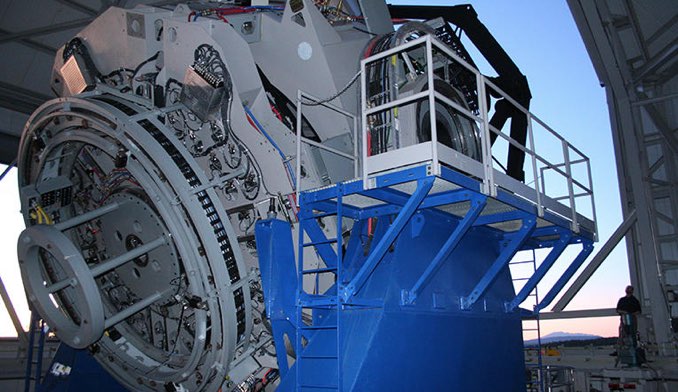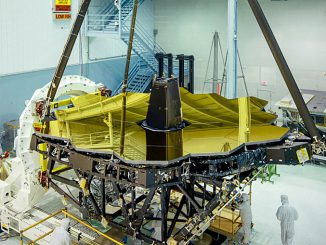
Yale University astronomers have developed a powerful new spectrometer to search for Earth-size planets around nearby stars. Expected to improve precision over earlier ground-based instruments by a factor of 10, the Extreme Precision Spectrometer – EXPRES – is now in operation at the Lowell Observatory’s Discovery Channel Telescope in Arizona.
“Up until now, the only planets we could detect with ground-based spectrographs were the bigger ones, the Saturns and Jupiters,” said Debra Fischer, whose team at Yale designed the EXPRES instrument. “We know the smaller planets are out there, but they’ve slipped through our nets.”
The new spectrometer is equivalent, she said, “to the difference between early digital cameras 10 years ago and the latest smartphone photography.”
EXPRES is designed to measure tiny doppler shifts in the light from a star as it wobbles back and forth, as viewed from Earth, due to the gravitational tug of orbiting planets. What sets EXPRES apart is its ability to detect radial velocity changes produced by the influence of Earth-size planets. A similar Swiss-led instrument known as ESPRESSO went into operation late last year, scanning the southern skies using the European Southern Observatory’s Very Large Telescope facility.
“The future trajectory of exoplanet research depends critically on how well we improve radial velocity precision in spectrometers today,” Fischer said. “We’ve designed some very clever tests. It’s going to be amazing.”



